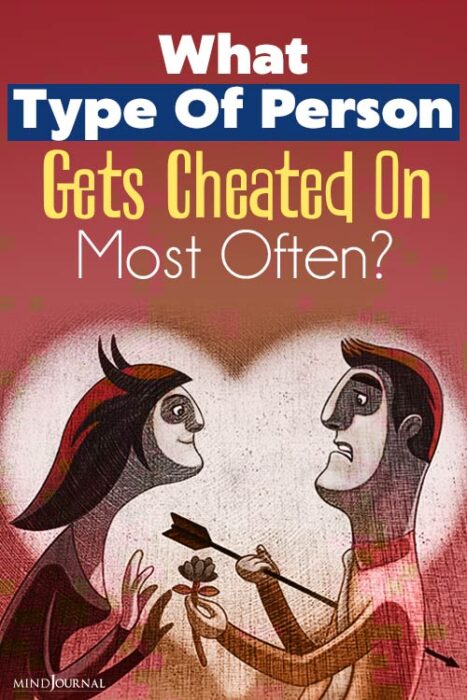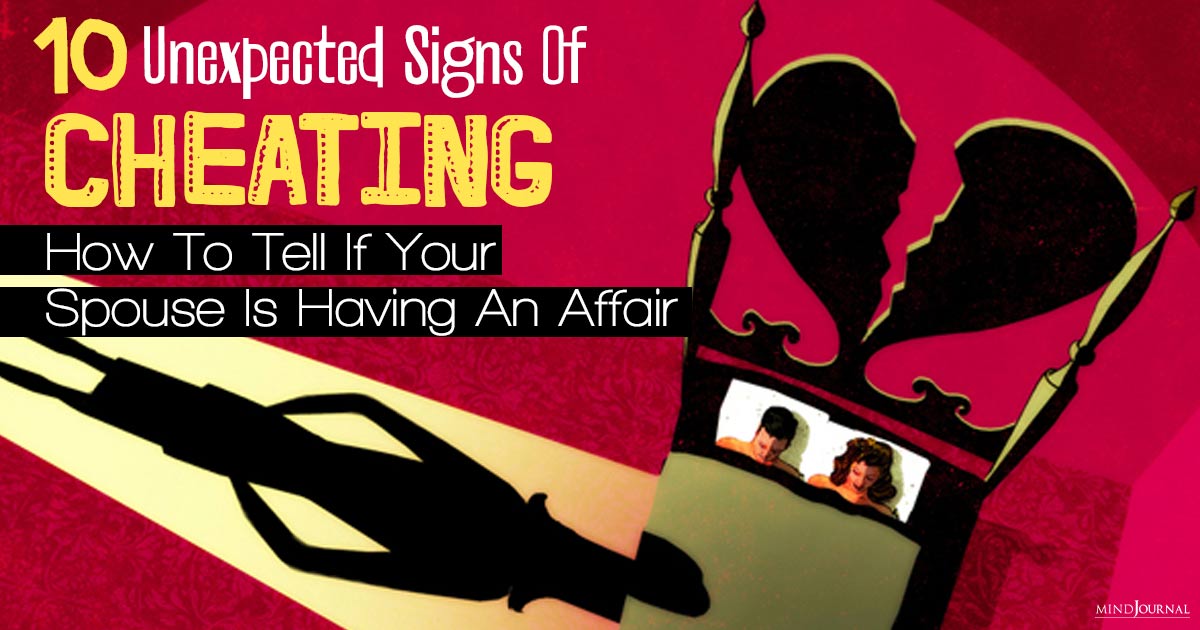When it comes to love, the question of who gets cheated on more remains elusive. Join me as we navigate the complex landscape of relationship dynamics.
Cheating in relationships is unacceptable, and it never ceases to be painful. But one thing should be considered when it comes to infidelity, and that is – what type of person is more likely to be cheated on? And is there actually some specific personality traits that contribute to that person getting cheated on?
It’s the ultimate betrayal: Cheating. Research on infidelity has explored many facets of the experience, including how often it happens, qualities in a relationship that may lead to cheating, and traits of those who are more likely to cheat (Fincham & May 2017).
But, to this point, research has largely ignored the non-cheater—the person uninvolved in committing infidelity but gets cheated on.
Though their partner’s unfaithful behavior certainly isn’t their fault, understanding as many potential factors related to cheating is important because the research is clear: Cheating harms relationships.
The more we learn about contributing factors the better our chances of minimizing infidelity’s prevalence and impact.
In a just-published 2020 study, Meghna Mahambrey of the Ohio State University seeks to answer the question, “Who gets cheated on in relationships?” Specifically, she was curious about which aspects of a person’s personality may make them more susceptible to having their partner or spouse commit infidelity.
Study participants came from a large nationally representative sample with analyses focusing on 1,577 participants, 898 of whom were married, in middle/late adulthood, who completed a telephone interview and a self-report survey. Across the entire sample, 19% reported being cheated on at some point.
The researcher gathered information on personality by asking participants how well 26 different Big Five personality traits described them:
- Openness (e.g., adventurous, curious, intelligent).
- Conscientiousness (e.g., responsible, hardworking, organized).
- Extraversion (e.g., friendly, outgoing, talkative).
- Agreeableness (e.g., caring, softhearted, sympathetic).
- Neuroticism (e.g., moody, nervous, worrying).
To gauge cheating, they also listed a series of life experiences and asked participants to check any that applied, including “Spouse/partner engaged in (marital) infidelity.”
Related: 12 Key Reasons Why Some Women Cheat In Relationships According To Psychologists
Findings – who gets cheated on more?
Obviously, a lot of things contribute to cheating in a relationship, beyond personality. In her models, the researcher accounted for factors such as age, education, gender, race/ethnicity, and religiosity.
Even after statistically accounting for those (i.e., controlling for them), she found that across the entire sample, those who were less conscientious (i.e., more careless, less hard-working, and organized) were more likely to have a partner cheat on them.
When she did similar analyses on the subsample of married individuals, she found the same pattern for conscientiousness, but also found that people who were more agreeable (i.e., more warm and helpful) were more likely to have their spouse commit infidelity.
What These Results Mean – What Type Of Person Is More Likely To Be Cheated On?
First, what it doesn’t mean: This isn’t a justification to blame the victim. Finding a correlation between certain personality characteristics and a partner’s unfaithfulness does not show that you are to blame if you happen to be an agreeable or non-conscientious person. The cheating partner is the one who violated the relationship’s trust; it’s their fault.
Though being agreeable is generally a desirable trait, in the context of cheating it’s possible that having a more agreeable partner emboldened the cheater to feel that their transgression would be more easily forgiven.
Having low conscientiousness could also cause problems: As the researcher explains, “Having an unreliable, immature, or lazy partner could increase stress and conflict when navigating day-to-day responsibilities such as paying bills, doing household chores, attending work events, honoring personal commitments, and so on.”
None of these excuses cheating, but other research does show that when participants described their partner as low in conscientiousness and agreeableness, they reported lower marital satisfaction (Shackelford et al., 2008).
We also know that individuals who themselves are low in conscientiousness and agreeableness are more likely to cheat (Schmitt, 2004). It is logical that those same traits also play a role in the uninvolved partner.
People who get cheated on in a relationship also share qualities with people who are least likely to cheat in their relationship.
Related: Why Infidelity Isn’t Always Black And White As People Believe It To Be
That study found that people who were highly conscientious and agreeable, along with low openness tended not to commit infidelity (Apostolou & Panayiotou, 2019). Taken together, these studies show the importance of conscientiousness and agreeableness in relationship dynamics.
It’s important to note that the present study’s results only apply to participants who knew their partner cheated; if anything, the overall cheating rate of 19% is likely an underestimate.
We should also note that the type of infidelity was not specified, so the researchers relied on participants’ own definition, which could include a range of behaviors from emotional infidelity to sexual intercourse.
Ultimately, while being more conscientious certainly can’t guarantee that your partner won’t cheat, exuding greater responsibility, self-discipline, and helpfulness can benefit your relationship.
Love relationships? To learn more, see my new book Stronger Than You Think: The 10 Blind Spots That Undermine Your Relationship…and How to See Past Them
You can also follow me on Twitter: @LewandowskiPhD
References:
Apostolou, M., & Panayiotou, R. (2019). The reasons that prevent people from cheating on their partners: An evolutionary account of the propensity not to cheat. Personality and Individual Differences, 146, 34–40. https://doi.org/10.1016/j.paid.2019.03.041 Fincham, F. D., & May, R. W. (2017). Infidelity in romantic relationships. Current Opinion in Psychology, 13, 70-74. http://dx.doi.org/10.1016/j.copsyc.2016.03.008 Mahambrey, M. (2020). Self-reported Big Five personality traits of individuals who have experienced partner infidelity. Personal Relationships. Online first (Version of Record online: 10 June 2020): https://doi.org/10.1111/pere.12315 Schmitt, D. P. (2004). The Big Five related to risky sexual behavior across 10 world regions: Differential personality associations of sexual promiscuity and relationship infidelity. European Journal of Personality, 18, 301–319. https://doi.org/10.1002/per.520 Shackelford, T. K., Besser, A., & Goetz, A. T. (2008). Personality, marital satisfaction, and probability of marital infidelity. Individual Differences Research, 6, 13–25 Retrieved from https://www.toddkshackelford.com/downloads/Shackelford-Besser-Goetz-IDR-2008.pdf
Cheating is always a painful thing to go through, and no matter how much someone tries, there is hardly any justification for it. Being conscientious is a good thing, and you should not let go of something good in you just because someone else is unable to appreciate it.
Share your thoughts on who gets cheated on most in the comments below!
Written By Gary W. Lewandowski Jr. Originally Appeared In Psychology Today









